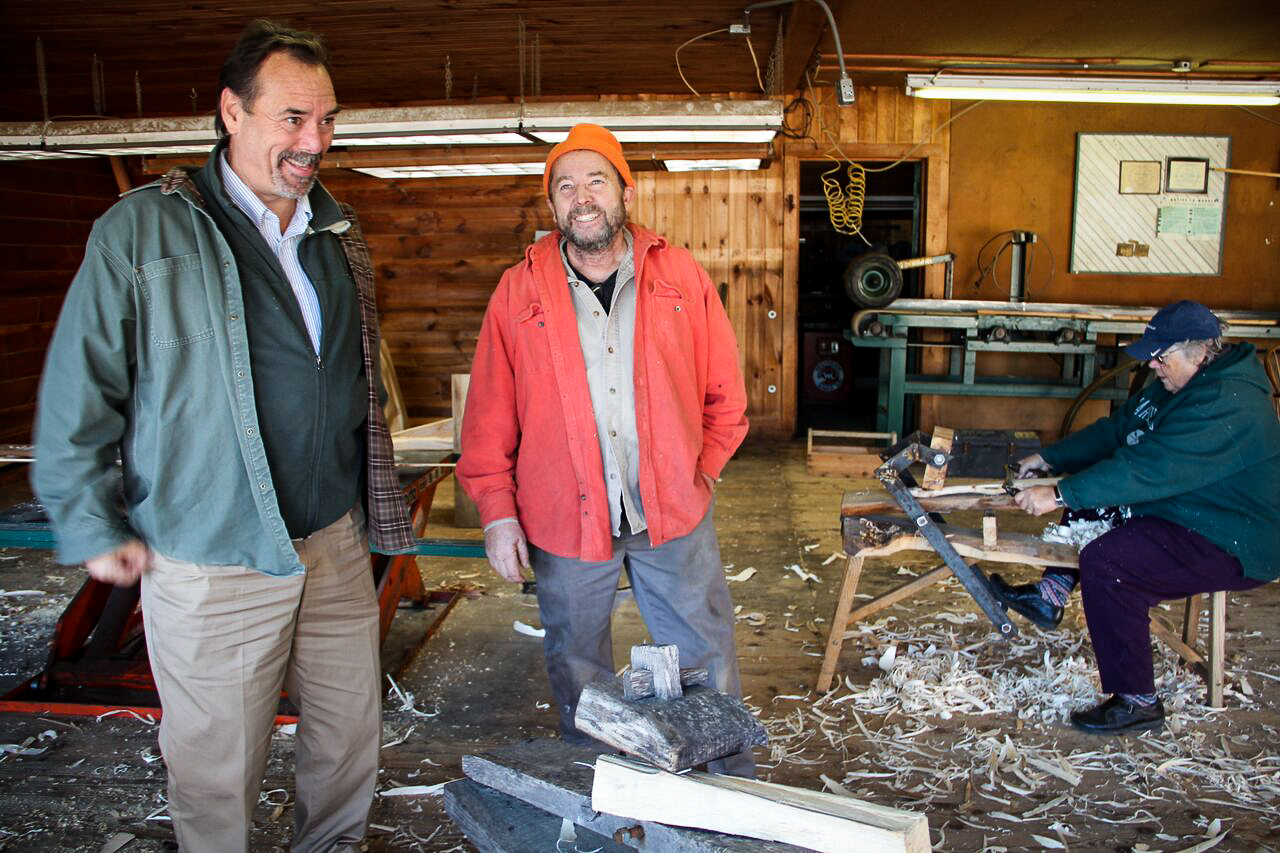December 18, 2017
Tear Cap Workshops
In the foothills of Western Maine, Thomas Hammond and Sons sawmill, a family-owned and operated business, ran a pine sawmill for over four generations at the base of Tear Cap mountain in Hiram. Originally opening its doors in 1910, the mill shut down suddenly in 2009 due to the national economic collapse and a fire. The rural community which relied on the sawmill as an economic driver felt the loss of this century-old institution. All the employees were laid off, and the owner had to close the doors for good.
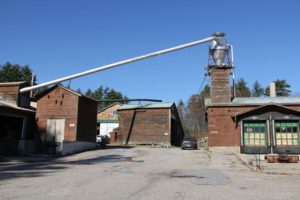
Dan Dolgin, an investor, purchased the property shortly thereafter, and Henry Banks, a local contractor who had sourced wood from the sawmill throughout his career, stepped in as the manager of the site. Henry had always loved the mill and land, and quickly caught the vision to transform the 19.6 acre property, with 12 buildings on site, into a workspace where local tenants could rent workshop or storage space, and learn through hands-on practical training. “I want to teach people how to use their hands to make things. We’re surrounded by woods here in the woods-industry state. These are skills that need to be passed on to the next generation,” said Henry. The property was a blank canvas with strong infrastructure and space for significant expansion.
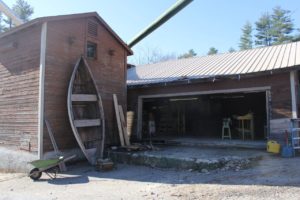
Tear Cap Workshops was co-founded by Henry and his daughter, Sarah together with five founding board members in 2016. Tear Cap Workshops received 501(c)(3) status later that same year. The original plan was to operate this new non-profit, hands-on craft school, next to the artisan collective, either renting or buying a few acres and growing from there. But a few months later, when Dolgin mentioned selling the property, Henry jumped at the idea. “We were fishing without a lure without Tear Cap Workshops owning the property. We knew we would only be at the dream hobby level until the non-profit owned it.”
Sarah Banks found CEI and applied for a loan to help with the purchasing cost of the property. She worked closely with CEI loan officer Art Stevens, who became passionate about the vision to create a small craft school alongside an artisan collective.
“Within minutes of my initial site visit with Henry I could sense his passion for the project and shared in his enthusiasm for the possibilities offered by this unique property. CEI’s capital provided the first critical step in Tear Cap’s realizing its vision and the positive impact of this investment will grow exponentially in the coming years.” -Art Stevens, loan officer, CEI
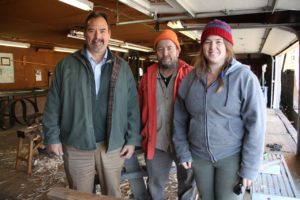
“A project of this size requires a vision and a team. It’s a slow climb, but CEI’s team demonstrated incredible perseverance through the entire process,” said Sarah. After almost a full year working with CEI’s business advising and lending teams, and overcoming complex, time-consuming hurdles, Tear Cap Workshops received a loan from CEI which allowed them to purchase the Hiram Works property and move forward with the dream of owning and operating a great craft school.
“The day we received financing from CEI to purchase the property, I realized, ‘This is my new life!’” -Henry Banks, owner, Tear Cap Workshops
Henry immediately opted out of the contracting business that he had grown and operated for his entire career to invest fully, alongside his daughter, in Tear Cap Workshops. “Our vision grew based on the space; Form followed function,” said Sarah. “We think this is the perfect place to meld a craft school with established artisans and craftspeople. So much of the inspiration of forming Tear Cap Workshops came from this setting and its history. But it still feels surreal — I can’t believe it’s ours.”
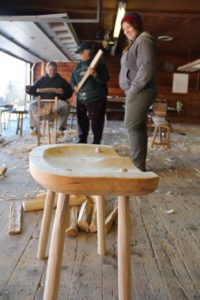
In alignment with the mission of Tear Cap Workshops, all the materials used on site are sourced locally. Much of the wood used in the furniture-making classes, for example, comes from the eight acres of forest land adjacent to the old mill. The first class offered in Fall 2017 was Build a Shave Horse, a precursor to the upcoming Build a Chair class. As an organization that values diversity and inclusion, they will make income assistance available so that students’ inability to pay will not be a barrier. Tear Cap Workshops also took part in the Wood Innovators Conference which drew wood specialists and businesses from around the country, and internationally, around the subject of innovative wood products. The co-founders envision the campus becoming a community space where people can learn, practice, and create.
For now, Tear Cap Workshops is focusing on cleaning up the property, one building at a time. The renovation of the woodworking shop, the primary space for classes, will last through the winter, followed by the installation of saws and benches. They also anticipate a solar installation to improve energy efficiency in 2018 and are currently working with CEI client ReVision Energy.
